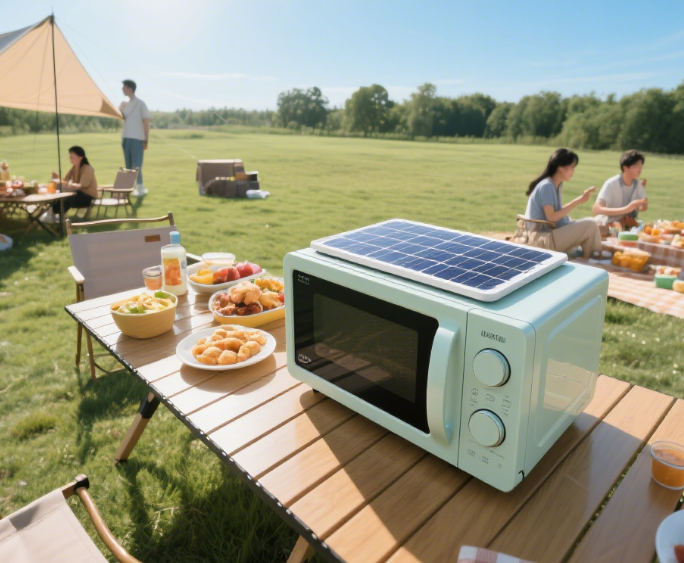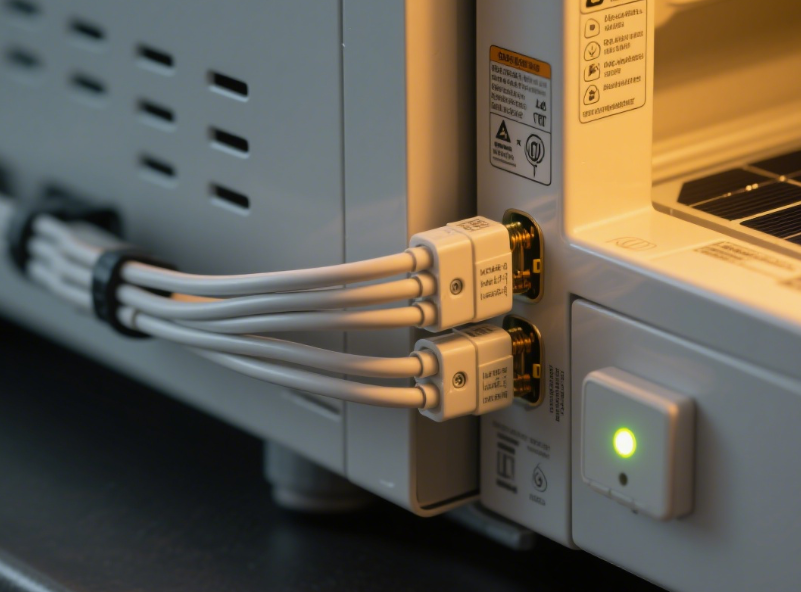


Views: 0 Author: Site Editor Publish Time: 2025-07-24 Origin: Site








Microwaves have become a staple in modern kitchens, offering a quick and convenient way to heat food. With so many households relying on this appliance, it’s important to understand how much energy it consumes. Whether you’re concerned about your electricity bill or looking to reduce your carbon footprint, knowing how many watts your microwave uses is a great first step in managing your energy consumption.
In this article, we’ll explore the wattage of microwaves, explain how it affects your energy consumption, and show you how this knowledge can help you make better energy decisions. Additionally, we’ll delve into how solar panels, a sustainable energy solution, can work in conjunction with your microwave to lower energy costs and help the environment.
When we talk about watts in relation to microwaves, we are referring to the amount of electricity the microwave uses to perform its tasks. The higher the wattage, the more power the microwave requires, which generally means it can cook food faster. But higher wattage also translates into higher energy consumption.
Microwaves typically range in power from 600 watts to over 1,200 watts. This variation can influence how much energy the appliance uses over time. A microwave with a higher wattage cooks food more quickly, but it will use more electricity during that time. In contrast, a lower-wattage microwave might take longer to heat or cook food but will use less energy in the process.
Low-power microwaves (600-800 watts): These microwaves are smaller in size and typically less expensive. They may take a bit longer to heat food but are more energy-efficient.
Mid-range microwaves (800-1,000 watts): These are the most common models, offering a good balance of cooking speed and energy efficiency.
High-power microwaves (1,000-1,200 watts): These models are more powerful and can cook food faster, but they will use more energy. They are suitable for larger households or for those who frequently cook or reheat larger portions of food.
Energy usage is often measured in kilowatt-hours (kWh), which indicates how much electricity is consumed over a specific period of time. To understand how much energy a microwave uses, we need to consider both the wattage and the amount of time it is running.
For example, if you run a 1,000-watt microwave for 10 minutes, it will consume a certain amount of energy. This can be calculated based on the microwave's wattage and the time it’s used. However, the key takeaway is that microwaves generally use a moderate amount of energy when compared to other kitchen appliances, and their energy consumption depends on factors like power level and duration of use.

Understanding the wattage of your microwave is important because it directly affects how much energy the appliance uses and, consequently, how much it adds to your energy bill. While microwaves are often more energy-efficient than ovens and stoves, they still consume electricity.
A microwave's wattage determines how quickly it cooks food, but it also plays a role in how much power it draws from the grid. A 1,000-watt microwave, for instance, will consume more energy than a 700-watt microwave during the same amount of cooking time.
In terms of energy cost, this means that a higher-wattage microwave will contribute more to your electricity bill, especially if used frequently. However, the total cost will also depend on how often you use the microwave, the power settings you choose, and the efficiency of your home’s energy systems.
If you’re looking for a way to reduce your electricity bill while still using your microwave regularly, consider using solar panels. Solar panels can help offset the energy consumption of appliances like microwaves by harnessing the power of the sun to generate electricity for your home.
Solar panels work by capturing sunlight and converting it into usable electricity. The energy generated can then be used to power appliances, including microwaves. By using solar power, you can significantly reduce your dependence on grid electricity, lowering your energy costs in the process.
An added benefit of using solar panels to power your microwave is that solar energy is renewable and environmentally friendly. Unlike traditional fossil fuels, which contribute to greenhouse gas emissions, solar energy produces no harmful byproducts, making it a cleaner option for powering your home.
The number of solar panels you need to power your microwave depends on a variety of factors, such as the wattage of your microwave, the amount of sunlight available in your area, and the amount of time you use your microwave each day. A rough estimate suggests that a few solar panels could be enough to power a microwave for several hours per day, especially if your home gets plenty of sunlight.
Solar panels are a long-term investment that can provide substantial savings over time. By using solar energy to offset the electricity costs of your microwave, you can make your home more energy-efficient and reduce your overall environmental impact.
Reduced Electricity Costs: Once installed, solar panels generate free electricity from the sun, helping you save on your monthly energy bills. This can offset the costs associated with using high-wattage appliances like microwaves.
Environmental Impact: Solar power is a clean, renewable energy source that helps reduce your carbon footprint. By using solar panels to power your microwave, you are contributing to a more sustainable energy future.
Energy Independence: Solar panels can help reduce your reliance on the grid, making your home more energy-independent. This is particularly useful in areas with fluctuating energy prices or frequent power outages.
Increase Home Value: Homes with solar panels are often more attractive to potential buyers. Installing solar panels can increase the resale value of your property, making it a smart investment for the future.

If you’re not ready to invest in solar panels just yet, there are other ways to reduce your microwave’s energy consumption. Here are a few tips:
Use the Right Power Setting: Most microwaves come with multiple power settings. Lower settings can reduce the overall energy consumption during use, especially if you're simply reheating food rather than cooking it.
Cook in Batches: If you need to heat several items, consider doing so in batches rather than running the microwave multiple times. This will reduce overall energy usage.
Keep the Microwave Clean: A microwave that is regularly cleaned runs more efficiently. Ensure that the inside of your microwave is free of food splatters and other debris, which can affect performance.
Use Microwave-Safe Containers: Using the right containers can help your microwave work more efficiently. Microwave-safe containers allow heat to circulate evenly, reducing cooking time and energy consumption.
Understanding how many watts a microwave uses is crucial for managing your energy consumption and electricity bill. While microwaves are generally energy-efficient compared to other kitchen appliances, their power consumption still adds up over time. By using solar panels, you can offset the energy costs of running a microwave and contribute to a greener, more sustainable home.
If you’re interested in making the switch to solar energy, Haina Solar offers high-quality solar products that can help you reduce your energy costs and lower your carbon footprint. With solar panels, you can power your microwave and other appliances while saving money and supporting a clean energy future.
A: Microwaves use less energy than ovens or stoves but still contribute to your energy bill. They are generally more efficient for reheating or cooking small portions of food.
A: Yes, solar panels can be used to power your microwave. By installing solar panels, you can reduce your reliance on the grid and save on energy costs.
A: Most microwaves fall within the range of 600 to 1,200 watts, with higher-wattage models cooking food faster but using more energy.
A: You can make your microwave more energy-efficient by using the appropriate power setting, cooking in batches, keeping it clean, and using microwave-safe containers.
A: Solar panels generate free electricity from the sun, helping you reduce your dependence on grid power. By powering appliances like microwaves with solar energy, you can lower your monthly electricity costs.